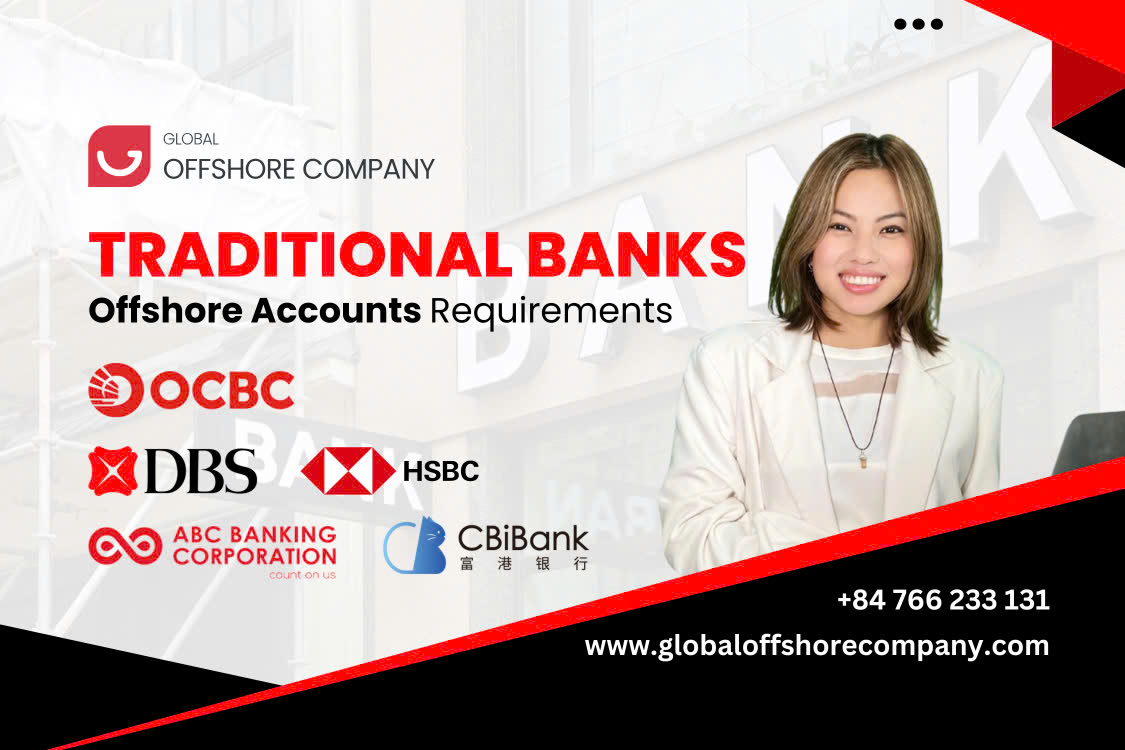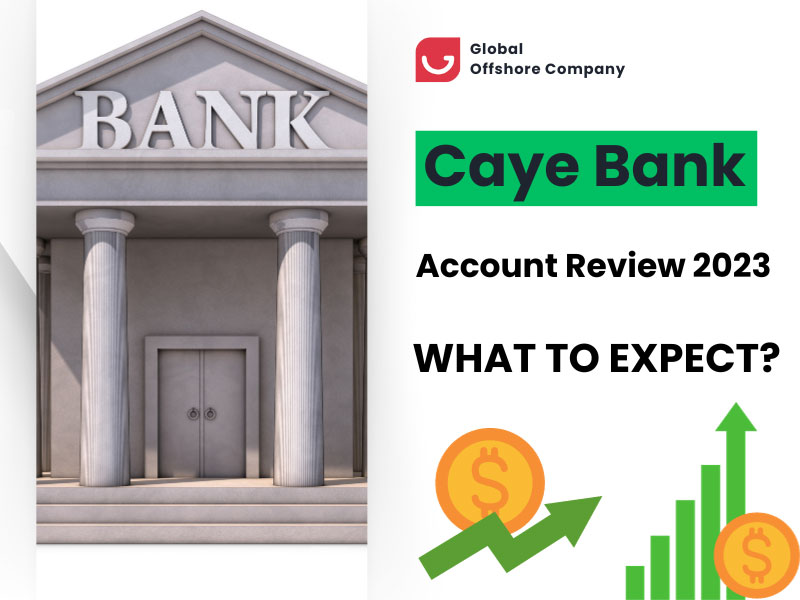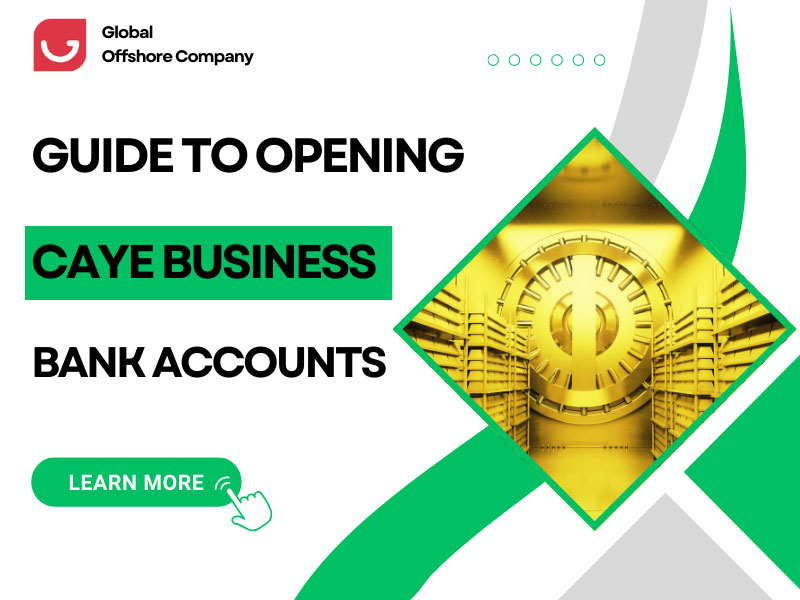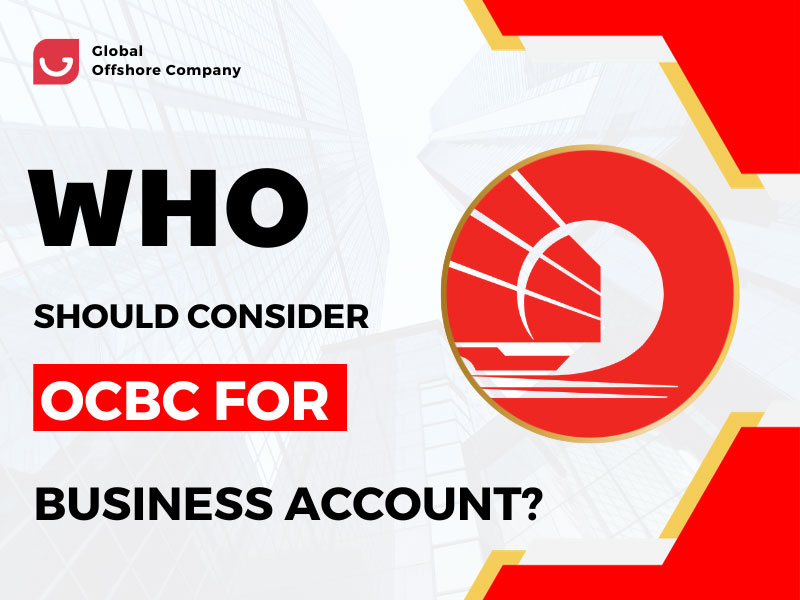How to open business offshore bank accounts in 2024?
Many people hear the words “offshore banking” and misunderstand that it’s an illegal activity like the vehicles for money laundering. However, it is perfectly legal and could benefit, especially for high-net-worth individuals, multinational corporations, and international businesses with real activities. Let's find out why offshore banking has caught businesses' interest and attracted a lot of attention nowadays.
1. What is offshore banking?
Offshore banking refers to the banks that conduct financial services and are located outside one’s home countries. Below are some reasons why you may need an offshore business bank account:
- International business, need to get paid or make payment in a foreign currency
- You need to get paid in USD, or other currencies for freelance jobs
- You own assets abroad such as investments or property
Each offshore bank has different features and its benefits. But basically, below are some of common ones:
- Potential tool for lawful tax optimization
- Easy to hold money, make and receive payments in multiple currencies
- Able to access international investment
- Good option for asset protection and keep money secure, especially in some banks in Singapore or Switzerland
- Easy to use the online banking anytime and anywhere
So how many types of offshore banks should we consider for our own businesses? Follow more in the next section.
2. Neo banks and traditional banks
Basically, there are 2 types of banks including traditional banks and neo banks. You can see how they are different as per the following instructions:
Traditional banks normally have:
- Physical branch with regional headquarters in each country where they are active;
- Their own-branded ATMs;
- People can visit their office for face-to-face or one-to-one customer service
- Have licenses and be regulated to offer a wide range of banking services including but not limited to saving accounts, checking accounts, loans, letters of credit, debit/credit cards or more.
They prefer to work with offshore businesses with verified financial strengths from existing business experience and startups with funds secured from established venture capitals. They have rigorous requirements on the KYC documents, minimum initial deposit, monthly and maintenance fee for such offshore businesses which have the lack of operating presence locally because of concerns for money laundering risk.
Due to the tightening policies of traditional banks as mentioned above, neo banks have now become trusted banking solutions for new offshore businesses. They work like regular banks but do not have a physical branch, only have licenses to send and receive money, not holding. This is why they have to partner up with big banks in each respective country where they issue the holding currency to be able to issue bank account information for clients. Engaging with reputable banks that can onboard offshore businesses with real activities make neo banks a perfect vehicle for international business optimization.
Let's use wholesale trading as an analogy: Traditional banks are the wholesaler, neo-banks are the retailers, and offshore businesses are the end-user. The banking landscape establishes the business model to be able to expand their product offerings to new modern businesses such as offshore companies while staying compliant to their government policies. To combat money laundering risks, traditional banks need a middle man who acts as a risk bearer in order to extend their banking products to these offshore businesses.
Neo banks also do have outstanding benefits such as:
- Open for start-up companies that do not have much proof of businesses
- No initial deposit, no monthly and maintenance fee
- Fast and remote process (7-10 working days)
- Global account, allow to get payment in multiple currencies
- Competitive withdrawal & bank transfer fee for both local & international transactions
- Payment gateway for online stores
- Unlimited virtual or physical debit cards
- Easy to integrate with common accounting softwares like Xero or QuickBooks.
Choosing between neo banks or traditional banks depends on numerous factors: business financial strength and history, supporting proofs you can submit to the banks, what you prioritize on banking experience and services.
If you are concerned about the appropriate business offshore banking options for your financial needs, let’s connect a dedicated support team from Global Offshore Company. Having considerable experience of working with trusted banks worldwide, we know how each bank works, how the good applicants look and ready to provide the personalized guidance or tailored strategy, we’re here to ensure that your application will have the highest success rate.
3. Key steps for opening a business offshore bank accounts?
Step 1: Know the bank’s requirements
It’s essential to know the comprehensive due diligence of each bank to see which one is perfect for your financial needs. Basically, you should to know:
- The bank’s fee
- Initial deposit, account opening fee (if any)
- KYC/KYB documents required
- Restricted list on both countries and business lines
- The procedures step by step
If you are a newbie, engaging with a consultant is needed because they can provide expert knowledge and tailored guidance on various offshore banking options, ensure higher approval for your application, be able to negotiate the bank’s fee, save time and effort dramatically.
Step 02: Gather information/documents
Upon finding the suitable offshore banking solution, you need to prepare the required documents for the bank’s verification purposes. Each bank has different requirements but basically, the following list is commonly requested:
- Personal documents: Passport or government issued ID card and address proof issued within the latest 3 months
- Corporate documents: One set of business documents (Certificate of Incorporation, Memorandum & Articles of Association, Certificate of Incumbency, Certificate of Good Standing,...etc)
- Background information or industry experience of the owners
- List of customers and suppliers: Their name, website, country of operation with relevant proofs (invoice, contract, agreement, bank statement, communication records...etc)
- Source of funds declaration: 3-6 months of bank statements of the owners/existing or relevant companies with group of business structure
- Business plan: Detailed description of business activities, website, country of operation, marketing plans, how to use the business bank account
Not all banks require for the above documents, but some banks still may have additional documents that are not listed here.
Step 03: Submit the application
The next step is to submit an application with the bank, allowing them some time to review your documents/information. Case by case, the compliance officer may require supporting documents for verification purposes.
Once everything is clear, the final result will be sent to you via email:
- If the account is approved, you’ll receive a welcome letter and guideline on how to activate and use the business bank account.
- If it’s denied, the bank will send you a confirmation via email. And normally, they won’t disclose the reason due to the compliance policy.
Through the articles today, we hope you find useful information concerning offshore banking and get the answer on the best choice for your business financial needs. If you are still uncertain about your decision on offshore banking and need more advice, feel free to contact Global Offshore Company via one of the below methods:
- Email: info@globaloffshorecompany.com
- Phone number: +84766233131; +6531051646; +13602065656
- Whatsapp number: +84766233131
Disclaimer: This article is for informational reference purposes only, you should not substitute the information provided in this article for competent legal advice. Please contact us if you need personalized advice for your particular situation.

.png)









